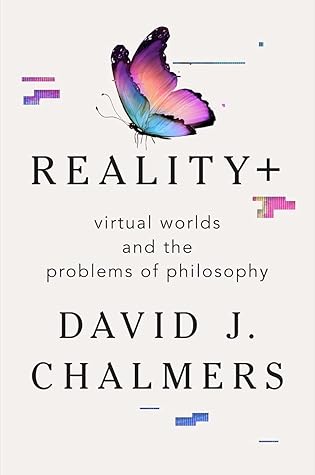More on this book
Community
Kindle Notes & Highlights
We can put Descartes’s argument as follows: We don’t know that we’re not in a virtual world, and in a virtual world nothing is real, so we don’t know that anything is real. This argument turns on the assumption that virtual worlds are not genuine realities. Once we make the case that virtual worlds are indeed genuine realities—and especially that objects in a virtual world are real—we can respond to Descartes’s argument.
in particular, as adding a fourth plank to the thesis that virtual reality is genuine reality: namely, virtual and augmented minds are genuine minds.
On one interpretation, Zhuangzi’s butterfly dream raises a question about knowledge: How do any of us know we aren’t dreaming right now? This is a cousin of the question raised in the introduction: How do any of us know we aren’t in a virtual world right now? These questions lead to a more basic question: How do we know anything we experience is real?
Our three stories raise questions in each of these domains. Knowledge: How can Zhuangzi know whether or not he’s dreaming? Reality: Is Narada’s transformation real or illusory? Value: Can one lead a good life in Plato’s cave?
To recap, our three main questions about virtual worlds are the following. The Reality Question: Are virtual worlds real? (My answer: yes.) The Knowledge Question: Can we know whether or not we’re in a virtual world? (My answer: no.) The Value Question: Can you lead a good life in a virtual world? (My answer: yes.)
Metaphysics, the study of reality. Metaphysics asks questions like “What is the nature of reality?” (2) Epistemology, the study of knowledge. Epistemology asks questions like “How can we know about the world?” (3) Value theory, the study of values. Value theory asks questions like “What is the difference between good and bad?”
How could they be sure that this was reality, not another wish-fulfillment dream from the Council-mech? How could they be sure that they had really conquered it and were not just living an illusion in a watery cell? The answer was: they could never be sure.
There are noninteractive simulations, like standard simulations of galaxy formation, that do not interact with users at all. Because they aren’t interactive, they don’t meet the definition of virtual worlds. But the hypothesis that I’m in a computer simulation requires that I’m interacting with a computer-generated world through my sensory inputs and motor outputs. This hypothesis is equivalent to the hypothesis that I’m in a virtual world. As a result, the simulation hypothesis can equivalently be stated as the virtual-world hypothesis: I am in a virtual world.
How do you know you’re not having such a dream right now? Perhaps you could pinch yourself or run some experiments. That wouldn’t be too convincing, though, as any results you get could in principle come from a dream. And if you can’t know you’re not dreaming now, it seems that you can’t know that anything around you is real. In the 2010 movie Inception (spoiler
Our Reality Question about virtual reality was: Is virtual reality real or an illusion? If you answer by saying Virtual reality is an illusion, you’ll probably accept the second premise. Here’s why. Given this answer, you’ll also accept Simulations are illusions, since simulations are a kind of virtual reality in the broad sense. In fact, you’ll probably accept If you’re in a simulation, everything you experience in the external world is illusory. So if you can’t rule out the simulation hypothesis, you can’t rule out that everything in the external world is illusory. It seems to follow that
...more
Recall that the master argument for skepticism went like this. First, you don’t know you’re not in a simulation. (This amounts to saying no to the Knowledge Question.) Second, if you don’t know you’re not in a simulation, you don’t know anything substantial about the external world. Conclusion: You don’t know anything substantial about the external world. If you accept both premises, you have to accept the conclusion and accept global skepticism about the external world.
“What is real? How do you define real? If you’re talking about what you can feel, what you can smell, what you can taste and see, then ‘real’ is simply electrical signals interpreted by your brain.”


